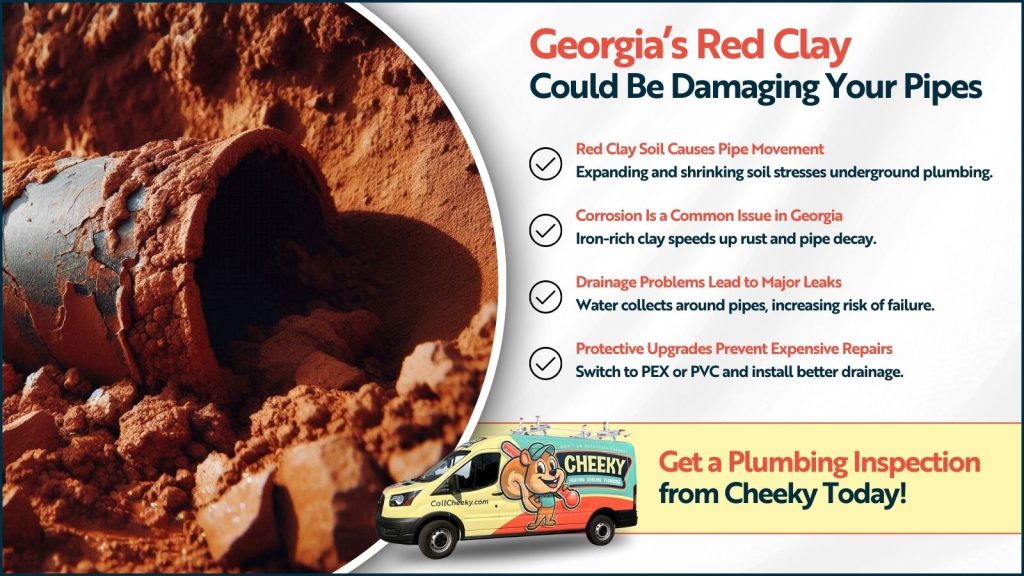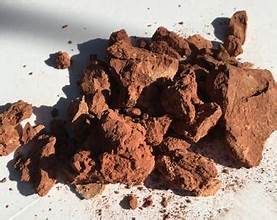If you live in Georgia, you’re probably very familiar with the bright, reddish soil that blankets much of the landscape. While Georgia’s red clay is rich in history and culture, it can pose serious challenges for homeowners, especially when it comes to plumbing. Understanding how red clay soil can affect your pipes is crucial for maintaining a safe and functional home.

Why Red Clay Is a Plumbing Problem
Georgia’s red clay is rich in iron oxides, which give it that signature rust-red color. However, this beauty hides some problematic properties. Red clay is incredibly dense and holds water for long periods. When moisture levels change—after heavy rains or periods of drought—the soil expands and contracts. This natural movement can create significant plumbing problems that many homeowners aren’t even aware of until it’s too late.
Corrosion Concerns
One major issue is corrosion. The iron oxides present in red clay can accelerate the corrosion of metal pipes. Over time, this can weaken the pipes, leading to leaks, bursts, and expensive repairs. If your home still relies on older galvanized steel or cast iron pipes, you’re especially at risk. Even newer homes can face challenges if inferior piping materials were used during construction.
Soil Shifting and Pressure
Another common problem stems from the shifting and pressure caused by red clay. When the soil swells with moisture, it puts pressure on underground pipes. When it dries out, the soil shrinks, potentially causing pipes to sag or crack. Repeated cycles of swelling and shrinking can weaken pipes over time, leading to unexpected breaks. These issues can be especially pronounced in areas with frequent heavy rains or drought periods, both of which are common in Georgia.
Drainage Dilemmas
Red clay also has poor drainage properties. Water tends to pool around foundations and buried pipes, creating an environment ripe for leaks and water infiltration. Left unaddressed, this can escalate into more serious issues like basement flooding, foundation damage, and even mold growth. Without good drainage solutions, even minor plumbing leaks can quickly turn into major structural concerns.
Protecting Your Plumbing from Red Clay
The good news is that with proactive care, you can minimize the impact of red clay soil on your plumbing system. Regular inspections and timely maintenance are key. If you suspect issues or want to prevent future problems, it’s wise to invest in professional plumbing maintenance in Cumming. Cheeky understands the specific challenges posed by Georgia’s unique soil and can recommend targeted solutions.
Some important protective measures include:
- Pipe Material Upgrades: Replacing older metal pipes with corrosion-resistant materials like PVC or PEX can greatly reduce your risk.
- Proper Drainage Systems: Installing French drains or improving grading around your home can help divert water away from pipes.
- Soil Stabilization: In some cases, adding stabilization materials or engineered backfill can reduce shifting and pressure on underground plumbing.
- Routine Inspections: Having a plumber routinely inspect your pipes can catch early signs of corrosion, movement, or leaks before they become major issues.
Partnering with a knowledgeable local plumber like Cheeky ensures your system is prepared to handle whatever the soil throws your way.




